
Europe
16:05, 28-Apr-2019
Voting begins in Spain amid far-right surge
Updated
21:33, 28-Apr-2019
Filio Kontrafouri
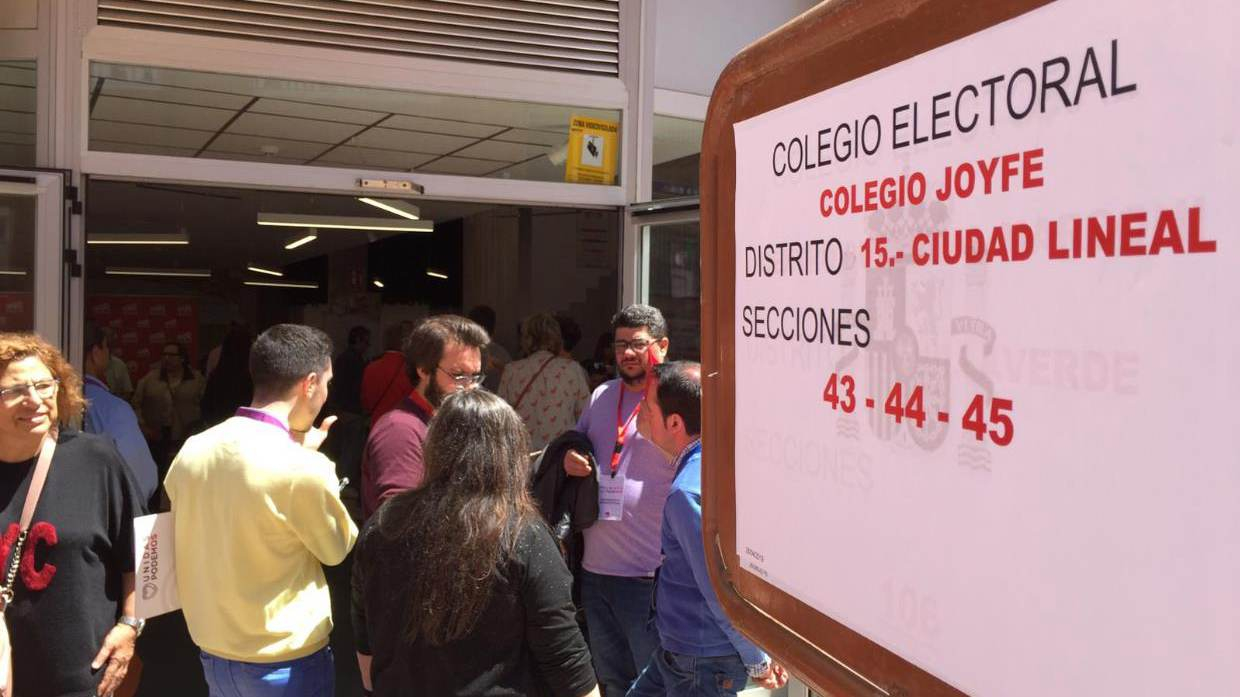
37 million Spaniards are heading to the polls Sunday in a polarized election that has divided Spain on nationalism, largely because of the issue of the Catalan independence, and social issues instead of policies and the economy.
This is the country's third general election in four years. Current Prime Minister Pedro Sanchez, the leader of the Spanish Socialist People‘s Party (PSOE) called for a snap election in February after Catalan nationalist and right-wing parties rejected his 2019 budget. It is the first general election since Catalonia's 2017 referendum on seceding from Spain that triggered a political crisis and fueled the rise of the far-right.
Vox (Voice), founded in 2013, is the first far-right party to emerge in Spain in decades and has vowed to save the country from Catalan and Basque separatists. It got less than one percent of the vote in the 2016 national elections. Polls show that on Sunday it can secure anywhere between 10-13 percent and with that, it will become the first far-right party represented in the Spanish parliament after Franco's dictatorship in 1975.
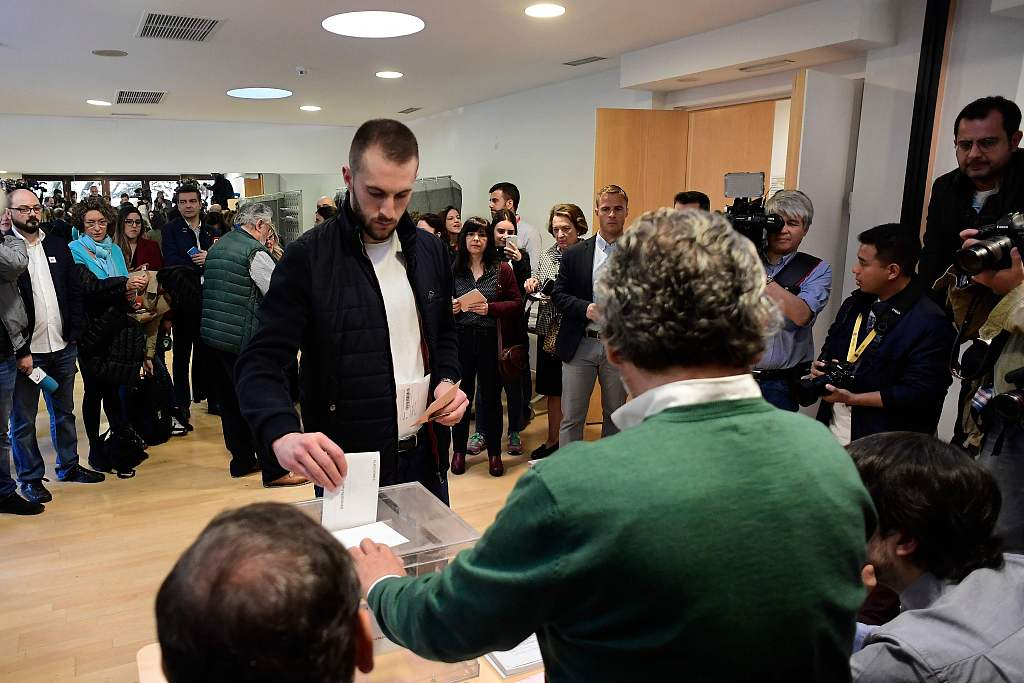
A man casts his ballot at a polling station in Madrid, Spain, April 28, 2019. /VCG Photo
A man casts his ballot at a polling station in Madrid, Spain, April 28, 2019. /VCG Photo
While Spanish politics had been for decades a battle between Spain's two main parties, the socialist PSOE and the conservative PP (People's Party), the economic crisis that engulfed Spain in the late 2000s gave rise to new ones.
On Sunday, voters will choose between five national contenders (and some groups representing Spain's autonomous regions, such as Catalonia and Basque County): PSOE, center-right Cuidadanos (Citizens) left-wing Podemos (We Can), the PP and nationalist Vox.
All polls give a lead to PSOE with about 30 percent of the vote, yet socialists will likely fail to win the 176 seats needed to have a governing majority in the 350-seat parliament. That means they will have to forge a governing coalition with the other left party, Podemos, which to many analysts is already a given.
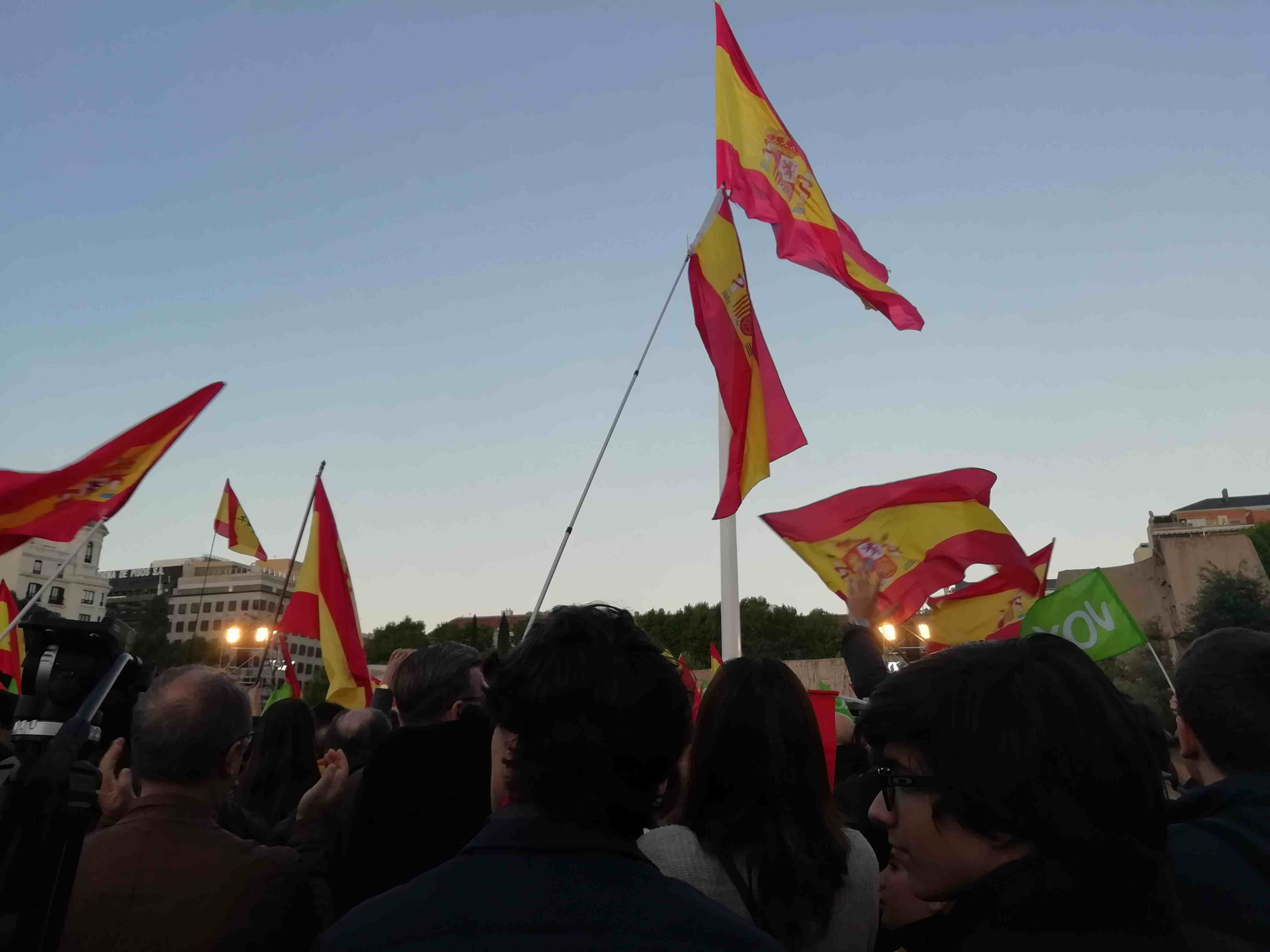
Supporters of the far-right VOX party at a rally in Madrid on the last day of campaigning, April 26, 2019. /CGTN Photo
Supporters of the far-right VOX party at a rally in Madrid on the last day of campaigning, April 26, 2019. /CGTN Photo
Even then, latest polls imply that that coalition would also fall short of the 176 seats needed to secure a majority. Sanchez may then have to resort to the help of Catalan parties –the same parties that broke his minority government.
On the other hand, there's the right bloc. The PP (which leads second in the polls) and Cuidadanos have been both moving more to the right to stem Vox's rising power while PP's new leader, Pablo Casado has already suggested that the three right parties should join forces to oust Sanchez.
If no leader manages to form a governing majority, there will be another general election.
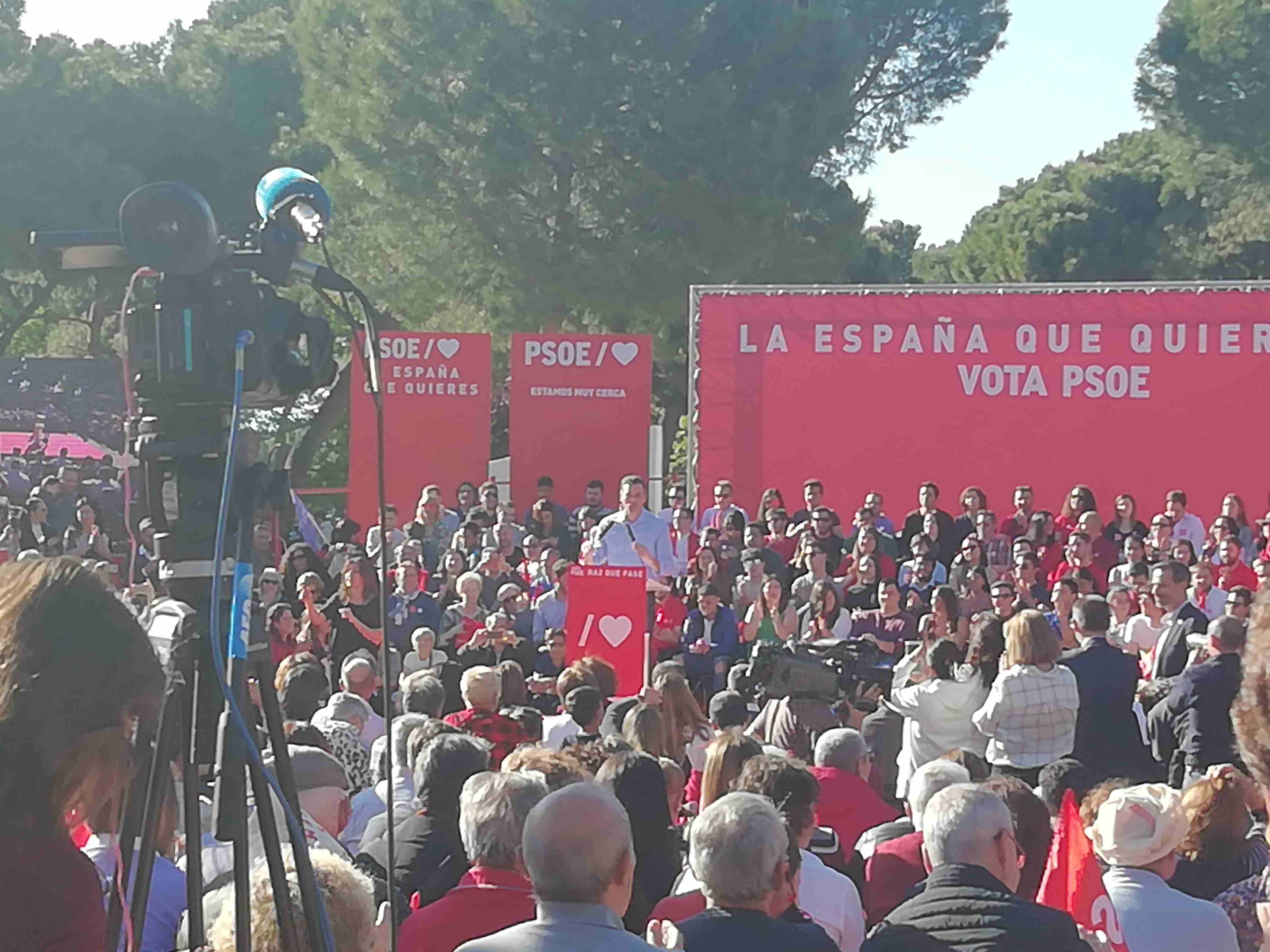
Though current Prime Minister Pedro Sanchez, here at a rally in Madrid on the last day of campaigning Friday, and his PSOE socialist party lead in the polls, it is unlikely he will secure a governing majority. /CGTN Photo
Though current Prime Minister Pedro Sanchez, here at a rally in Madrid on the last day of campaigning Friday, and his PSOE socialist party lead in the polls, it is unlikely he will secure a governing majority. /CGTN Photo
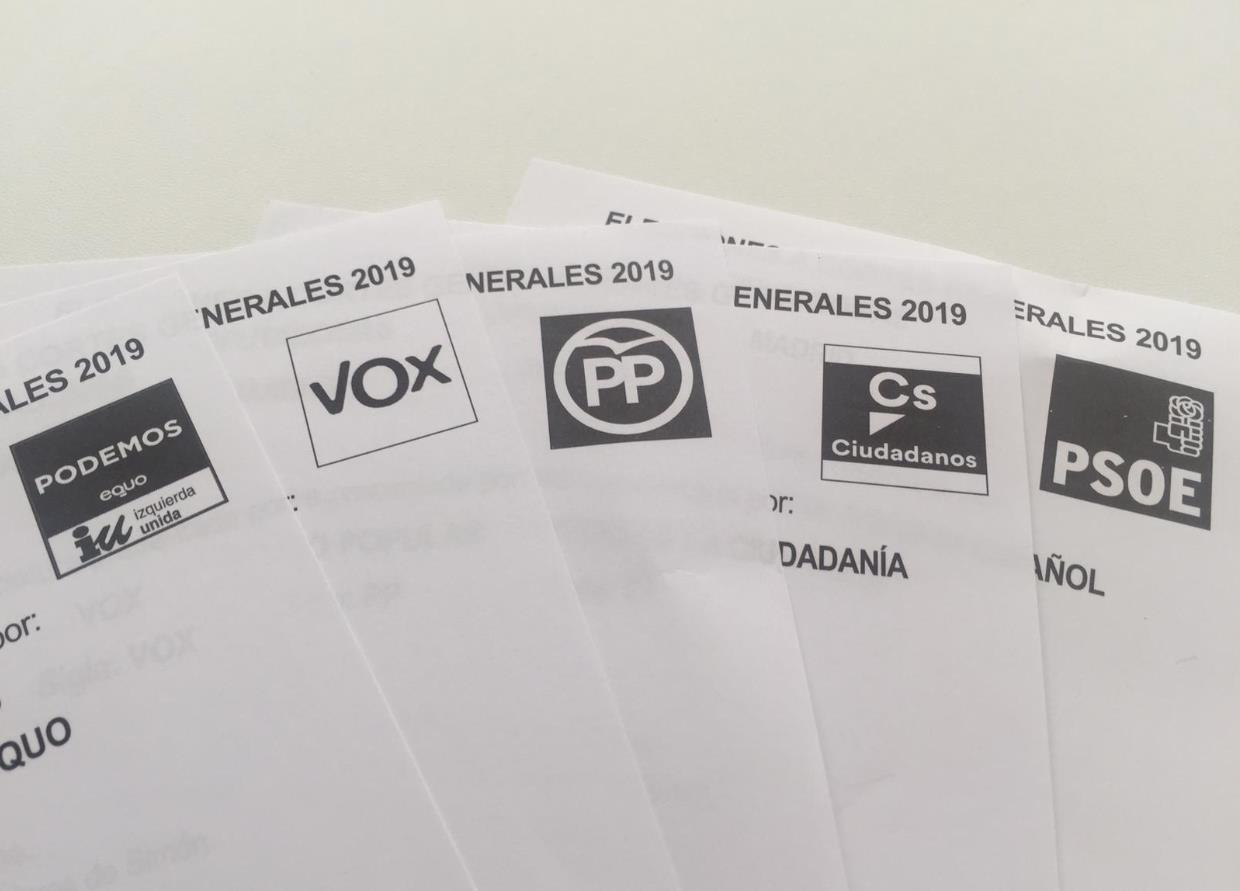
Spanish voters will choose between five national contenders and some groups representing Spain's autonomous regions, such as Catalonia and Basque County. /CGTN Photo
Spanish voters will choose between five national contenders and some groups representing Spain's autonomous regions, such as Catalonia and Basque County. /CGTN Photo
Spain, Europe's fourth-largest economy, is emerging from a devastating economic crisis. Though voters are concerned about the state of their country's economy and unemployment (which peaked at over 27 percent in 2013, according to the Spanish National Institute of Statistics and remains the second-highest in Europe after Greece), these issues have been in the back burner in the campaign trail.
A large number of voters remained undecided (anywhere between a quarter to 40 percent according to surveys) until Sunday and the big question is, if polls turn out to be correct, if on Monday Spain will have a government and what kind or there will be a repeat of the 2015 and 2016 elections, when both resulted in hung parliaments and months of political haggling and turmoil.
(Cover photo from CGTN)

SITEMAP
Copyright © 2018 CGTN. Beijing ICP prepared NO.16065310-3
Copyright © 2018 CGTN. Beijing ICP prepared NO.16065310-3